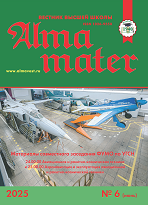UDC 37.09
https://doi.org/10.20339/AM.01-23.047
Anna S. Petrakova, Cand. Sc. (Philosophy), Lecturer at the Academic College at Academy of Marketing and Social and Information Technologies — IMSIT, Krasnodar, e-mail: petrakova_1984@list.ru
In the conditions of high dynamics of digitalization of all spheres of public life, the active use of blended and hybrid learning in educational practice is of particular importance. These phenomena have been introduced into the Russian education system relatively recently, which requires their careful consideration and detailed analysis. In the course of the study, the author of the article found that in the conditions of Russian pedagogical practice today there is no common understanding of the term “blended learning”, as there is no specifics in the differentiation of blended and hybrid learning, which gives rise to frequent substitution of concepts and the lack of detailing the difference in these phenomena. At the same time, the analysis showed that blended and hybrid learning are, although similar, but still not identical processes. In particular, hybrid learning involves the priority use of online formats, as well as the parallel, rather than sequential, implementation of innovative digital and traditional educational technologies, so that the difference between online participants and face-to-face participants is practically erased. The study also revealed the advantages, disadvantages and main problems in the implementation of blended and hybrid learning in Russia; emphasis is placed on the transformation of the teacher’s functions in the context of the transition to mixed forms. In particular, it has been established that it is not teaching that becomes the dominant function, but the organization and management of the pedagogical process, its methodological support using the synthesis of various educational technologies, advising students at all stages of mastering educational programs.
Keywords: blended learning, hybrid learning, pedagogical technologies, digital educational resources, e-learning, distance learning technologies, electronic information and educational environment, digital competencies.
References
1. Alekseeva, A.Z. Digitalization of education: technology of blended learning. Bulletin of the North-Eastern Federal University n.a. M.K. Ammosov. 2020. No. 3. P. 5–9.
2. Hybrid learning: how to make friends online with offline? Edutech. 2021. No. 7 (45). URL: https://sberuniversity.ru/upload/iblock/d9a/Edu_Tech_45_web.pdf (accessed on: 18.10.2022).
3. Kalinina, S.D. Conditions for the effective use of webinars in the educational process of the university. Scientific and methodological journal. 2015. No. 3 (23). P. 37–42.
4. Kizilova, A.S., Fadeev, G.N., Volkov, A.A. Hybrid learning: assessment in the categories of the information-axiological approach. Bulletin of the Minsk University. 2018. V. 6. No. 1. URL: https://cyberleninka.ru/article/n/gibridnoe-obrazovanie-otsenka-v-katego... (accessed on: 28.09. 2022).
5. Krivopalova, I.V. Blended learning as an innovative way to modernize the educational sphere. Bulletin of TSU. 2013. V. 18. Iss. 1. P. 60–63.
6. Lebedev, V. Hybrid learning: how to implement and what technologies to choose. In: Pedagogical Council. First National Psychological and Pedagogical Institute. URL: https://pedsovet.org/article/gibridnoe-obucenie-kak-vnedrit-i-kakie-vybr... (accessed on: 18.10.2022).
7. Loginova, A.V. Blended learning: advantages, limitations and concerns // Young scientist. 2015. No. 7 (87). P. 809–811.
8. Rubtsov, G.I., Panich, N.V. Mixed learning: analysis of interpretations of the concept. Domestic and foreign pedagogy. 2016. No. 5 (32). P. 102–108.
9. Rudinsky, I.D., Davydov, A.V. Hybrid educational technologies: analysis of possibilities and prospects for application. Bulletin of science and education of the North-West of Russia. 2021. V. 7. No. 1. URL: https://cyberleninka.ru/article/n/gibridnye-obrazovatelnye-tehnologii-an... (accessed on: 18.10. 022).
10. Semenova, L.M. The dynamics of digital didactics in the context of the transformation of higher education. Part II. World of Science. Pedagogy and Psychology. 2020 No. 4. URL: https://mir-nauki.com/PDF/04PDMN420.pdf (accessed on: 19.10.2022).
11. Starova, N.M. Online learning technologies in the design of training courses. Innovative development of vocational education. 2020. No. 4 (28). P. 44–48.
12. Tomlinson, B., Whittaker, C. Blended Learning in English Language Teaching: Course Design and Implementation. London: British Council, 2013. 252 p. URL: https://www.researchgate.net/publication/282483259_Blended_Learning_in_English_Language_Teaching_Course_Design_and_Implementation_B_Tomlinson_and_C_Whittaker_eds_2013_London_British_Council_ISBN_978-0-86355-706-4_252_pages (accessed on: 16.10.2022).











.png)






